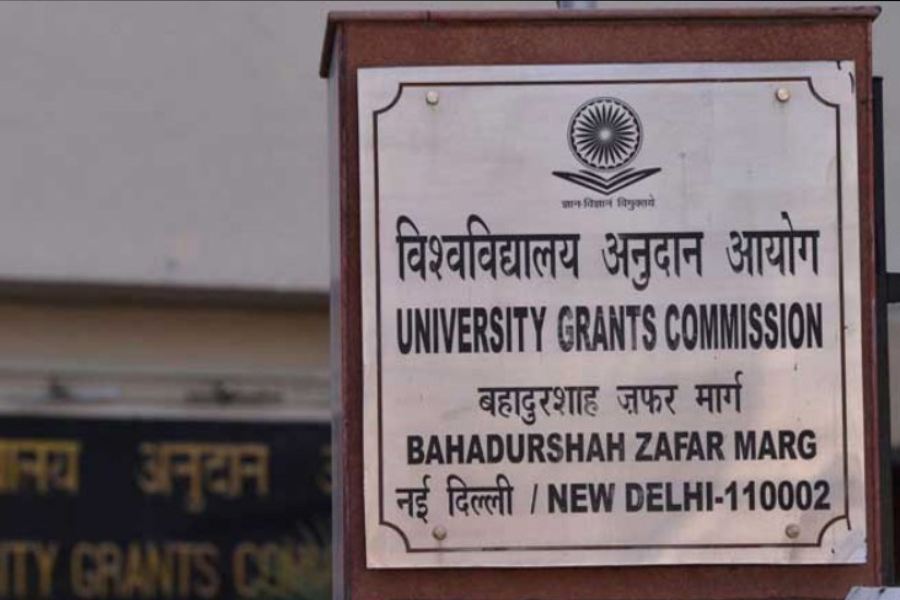The University Grants Commission (UGC) has directed universities and Higher Education Institutions (HEIs) across the country to publicise the new criminal laws and dispel "myths" surrounding them.
Among the "myths" cited by the UGC are that the new laws "threaten" individual freedom and aim to establish a "police state", that sedition provisions have been retained under 'Deshdroh' and that these legislations enable "police torture".
In its communication to the universities and HEIs, the UGC has also sent flayers mentioning these myths and truths.
UGC Secretary Manish Joshi said, "The Higher Educational Institutions have been requested to publicise the Bharatiya Nyaya Sanhita, 2023 around the themes contained in the flyers and by carrying out campaigns by way of displays through standees, distributing flyers and organizing seminars and talks by lawyers, judges both serving and retired and their respective faculties in their institutions." The HEIs have also been asked to share the details of the activities undertaken to the Ministry of Education for sending them to Home Ministry, he added.
The Bharatiya Sakshya Sanhita, 2023, The Bharatiya Nagarik Suraksha Sanhita Bill, 2023, and The Bharatiya Nyaya Sanhita, 2023 were passed by both Houses of Parliament during the Winter Session. They were enacted into law after they got assent from President Droupadi Murmu.
They will respectively replace Indian Evidence Act, 1872, the Criminal Procedure Code, 1973 and the Indian Penal Code (IPC).
In its flyers the UGC has mentioned the following "myths": "The new criminal laws threaten individual freedom, aim to establish a police state; (they) are mere repackaging of existing draconian provisions; the extension of custody from 15 to 90 days in the new criminal laws is a shocking provision enabling police torture; sedition is gone, but appears as 'Deshdroh' in Bharatiya Nyaya Sanhita 2023 and harsh punishment in hit-and-run cases under Bharatiya Nyaya Sanhita 2023".
While 20 new offences have been added in the (BNS), 19 provisions that existed in IPC have been deleted. In 33 offences the punishment of imprisonment has been increased, in 83 the punishment of fine has been enhanced, while in 23 the mandatory minimum punishment has been introduced and in six offences the punishment of 'community service' has been introduced.
The major changes proposed in the new criminal laws include introduction of definition of child; inclusion of transgender in the definition of 'gender'; inclusion of electronic and digital records in the definition of document and widening of the definition of 'movable to include property of every description.
New chapters on offence against woman and child and 'inchoate offences' (attempt, abetment and conspiracy) have been introduced while beggary has been introduced as a form of exploitation for trafficking.
New offences like organised crime, terrorist act, petty organised crime, hit-and-run, mob lynching, hiring child to commit offence, sexual exploitation of woman by deceitful means, snatching, abetment outside India, acts endangering the sovereignty, integrity and unity of India, publication of false or fake news etc. have been introduced.
Except for the headline, this story has not been edited by The Telegraph Online staff and has been published from a syndicated feed.










